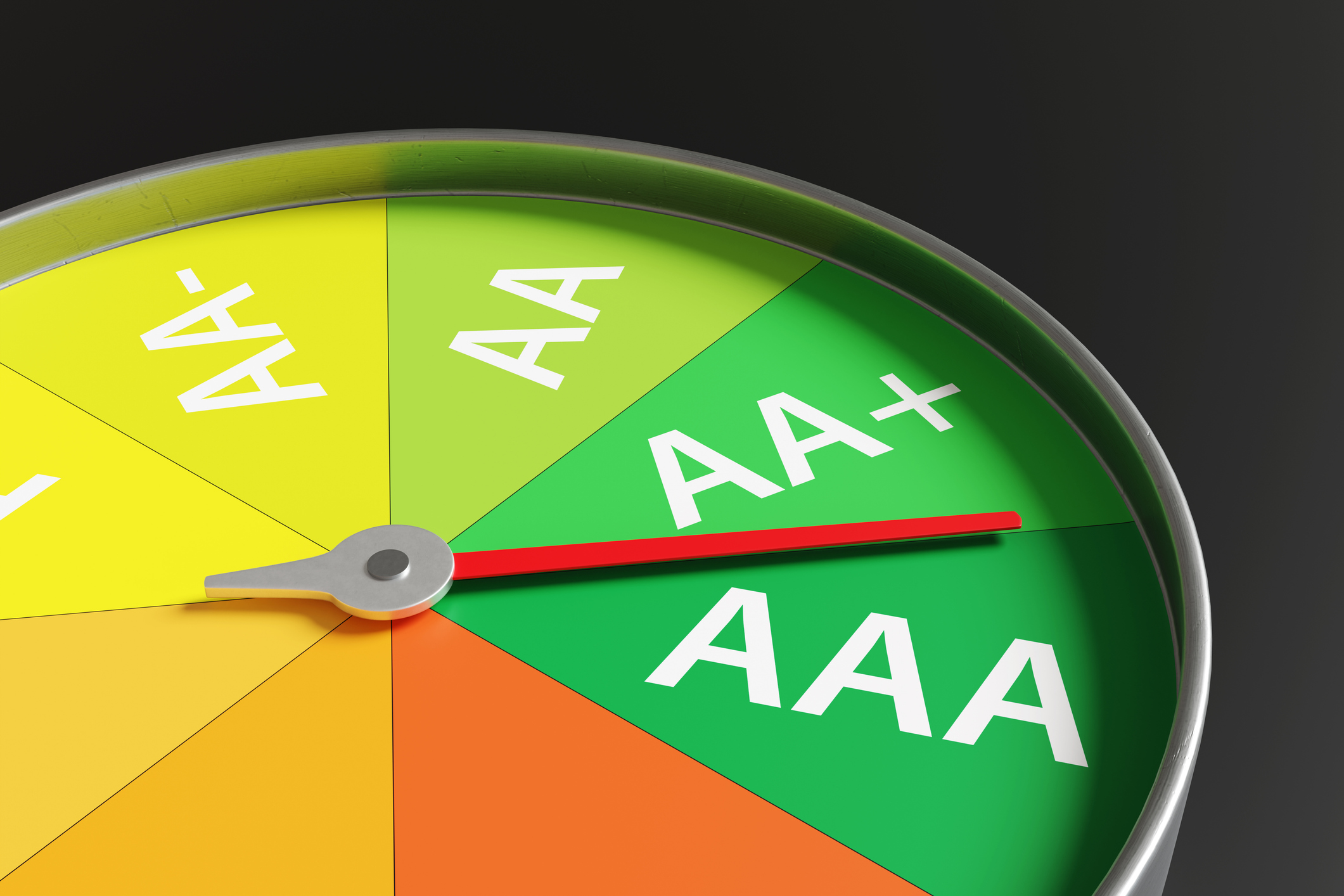The Four Best Bond Funds to Own Now
Bond yields have nowhere to go but up, and that means bond prices will fall. These funds take unconventional approaches to avoiding losses and boosting returns.

Profit and prosper with the best of Kiplinger's advice on investing, taxes, retirement, personal finance and much more. Delivered daily. Enter your email in the box and click Sign Me Up.
You are now subscribed
Your newsletter sign-up was successful
Want to add more newsletters?

Delivered daily
Kiplinger Today
Profit and prosper with the best of Kiplinger's advice on investing, taxes, retirement, personal finance and much more delivered daily. Smart money moves start here.

Sent five days a week
Kiplinger A Step Ahead
Get practical help to make better financial decisions in your everyday life, from spending to savings on top deals.

Delivered daily
Kiplinger Closing Bell
Get today's biggest financial and investing headlines delivered to your inbox every day the U.S. stock market is open.

Sent twice a week
Kiplinger Adviser Intel
Financial pros across the country share best practices and fresh tactics to preserve and grow your wealth.

Delivered weekly
Kiplinger Tax Tips
Trim your federal and state tax bills with practical tax-planning and tax-cutting strategies.

Sent twice a week
Kiplinger Retirement Tips
Your twice-a-week guide to planning and enjoying a financially secure and richly rewarding retirement

Sent bimonthly.
Kiplinger Adviser Angle
Insights for advisers, wealth managers and other financial professionals.

Sent twice a week
Kiplinger Investing Weekly
Your twice-a-week roundup of promising stocks, funds, companies and industries you should consider, ones you should avoid, and why.

Sent weekly for six weeks
Kiplinger Invest for Retirement
Your step-by-step six-part series on how to invest for retirement, from devising a successful strategy to exactly which investments to choose.
Navigating today's bond market is a treacherous business. Bonds, in my view, are in a bubble. Yields are too low and when they rise, as they surely will, prices of most bonds will fall. No one can tell you when the next bond bear market will begin, but it will pay to be prepared. This article offers my best picks for avoiding losses, and making small profits, when bond yields begin a sustained rise.
Contrary to all expectations, the bond market has stormed ahead so far this year—that is, yields have fallen and prices, which move in the opposite direction of yields, have climbed. The best performers have been high-quality, long-term bonds. Case in point: So far in 2014, Vanguard Long-Term Treasury (symbol VUSTX) has returned a sizzling 10.1%. (All returns in this article are through June 10.)
The Vanguard fund yields a meager 3.1%. That's just about what inflation has averaged annually over the long term. If consumer prices rise by that much over the next 20 or 30 years, you'll probably earn no more than the fund's yield over that period, allowing you to break even in real terms.
From just $107.88 $24.99 for Kiplinger Personal Finance
Become a smarter, better informed investor. Subscribe from just $107.88 $24.99, plus get up to 4 Special Issues

Sign up for Kiplinger’s Free Newsletters
Profit and prosper with the best of expert advice on investing, taxes, retirement, personal finance and more - straight to your e-mail.
Profit and prosper with the best of expert advice - straight to your e-mail.
That's the optimistic case. What's the downside? Consumer prices could rise at a faster pace, which would almost certainly push up bond yields. Indeed, because yields are so low today, they're likely to rise without any appreciable increase in the inflation rate. Should yields on bonds of similar maturities rise by one percentage point, this fund's price will plunge a jaw-dropping 15.3%. That's, of course, without even considering the impact of inflation. So much for the safety of Treasury bonds.
Unfortunately, the odds of yields staying flat or falling are negligible. Thanks to the Federal Reserve's actions, bond yields are far below their historical averages.
With the economy continuing to grow and the Fed gradually taking its foot off the easy-money pedal, bond yields have nowhere to go but up. That means that bond prices will fall.
The risks aren't confined to Treasuries. Junk bonds, which are issued by companies that stand an above-average chance of defaulting on their obligations, are perilously pricey. On average, junk bonds yield only about 3.8 percentage points more than Treasuries. Martin Fridson, a longtime junk bond analyst, says that high-yield bonds have gone from "extreme overvaluation" to "very extreme overvaluation."
Thanks to fears of deflation and the actions of central bankers almost everywhere, yields are low across the globe. Portugal, which appeared headed for default two years ago, now pays about 3% interest on ten-year government bonds. Spain and Italy both pay less than 2.5%—about the same, stunningly, as Uncle Sam pays on Treasuries. Japan and Switzerland pay less than 1%.
Below are my picks for the best funds for this dangerous market, listed from lowest risk to highest risk. To try to boost returns, these funds delve into odd corners of the bond world. None takes a conventional approach to bond investing.
FPA New Income (FPNIX) aims first and foremost not to lose money. Since FPA took over the fund in 1984, it has never suffered a down year, although it has lost money in about 15% of all months. Lead manager Tom Atteberry has positioned the fund for rising rates. He owns a slew of bonds and mortgage securities with below-investment-grade credit quality. Average credit quality of the fund's holdings is triple-B, slightly above junk status. The fund, which yields 3.5%, can expect to lose a mere 1.5% of its value should bond yields rise by one percentage point. Over the past five years, the fund returned an annualized 2.2%, compared with 5.1% annualized for Barclays U.S. Aggregate Bond index, which has benefited during a period of generally falling yields. Expenses are 0.58% annually.
Metropolitan West Unconstrained M (MWCRX) takes a proven strategy and removes the risk (and the opportunity) from falling yields. The fund's three managers have successfully piloted Metropolitan West Total Return M (MWTRX), a more conventional bond fund, since 1997. Unconstrained invests similarly—with one big difference: It sells some Treasuries short to minimize interest-rate risk. If interest rates rise one percentage point, the fund is positioned to lose only about 1% in price. Unconstrained owns a stew of low- and high-quality corporate bonds and mortgages. Average credit quality is double-B, putting the fund's holdings in junk bond territory. Since its inception in late 2011, the fund has returned an annualized 11.0%, compared with 2.4% for the Barclays Aggregate index. Expenses are 0.99% annually and the yield is 1.8%.
RiverNorth/Oaktree High Income (RNOTX) is one of the few ways for individuals to access the junk-bond expertise of Oaktree Capital Management, a highly regarded institutional money manager. The fund invests three-fourths of its assets in junk bonds and senior bank loans. The rest is managed by RiverNorth, which invests in income-oriented closed-end funds (closed-end funds trade on exchanges just like stocks). All told, about 80% of the fund's assets are in junk-rated securities. The fund would lose about 3% of its value if yields were to rise one percentage point. It yields 4.0%. One big negative: Expenses are high, at 1.60% annually. Since the fund's inception at the end of 2012, it has returned an annualized 7.3%.
Vanguard Convertible Securities (VCVSX) invests in hybrid securities that feature the attributes of both bonds and stocks. Like bonds, they pay a fixed rate of interest. But, as the name implies, convertibles can be converted into stock at a preset price, so their value often rises and falls with movements in the price of the issuing company's stock. Almost all convertibles have junk credit ratings, but this fund has a nearly unblemished record of avoiding bonds that default. Although the fund's name doesn't say so, Oaktree manages Vanguard Convertible. Over the past five years, the fund returned an annualized 13.8%. Annual expenses are 0.63%, and the yield is a modest 1.9%. I really like this fund, but it's about three-fourths as volatile as Standard & Poor's 500-stock index, so this is hardly a low-risk vehicle. You can only buy the fund directly from Vanguard.
Steve Goldberg is an investment adviser in the Washington, D.C., area.
Profit and prosper with the best of Kiplinger's advice on investing, taxes, retirement, personal finance and much more. Delivered daily. Enter your email in the box and click Sign Me Up.

-
 Dow Adds 1,206 Points to Top 50,000: Stock Market Today
Dow Adds 1,206 Points to Top 50,000: Stock Market TodayThe S&P 500 and Nasdaq also had strong finishes to a volatile week, with beaten-down tech stocks outperforming.
-
 Ask the Tax Editor: Federal Income Tax Deductions
Ask the Tax Editor: Federal Income Tax DeductionsAsk the Editor In this week's Ask the Editor Q&A, Joy Taylor answers questions on federal income tax deductions
-
 States With No-Fault Car Insurance Laws (and How No-Fault Car Insurance Works)
States With No-Fault Car Insurance Laws (and How No-Fault Car Insurance Works)A breakdown of the confusing rules around no-fault car insurance in every state where it exists.
-
 Bond Ratings and What They Mean
Bond Ratings and What They Meaninvesting Bond ratings measure the creditworthiness of your bond issuer. Understanding bond ratings can help you limit your risk and maximize your yield.
-
 Bond Basics: Treasuries
Bond Basics: Treasuriesinvesting Understand the different types of U.S. treasuries and how they work.
-
 Bond Basics: Ownership
Bond Basics: Ownershipinvesting Bonds come in a variety of forms, but they all share these basic traits.
-
 Bond Basics: Pick Your Type
Bond Basics: Pick Your Typeinvesting Bonds offer a variety of ways to grow wealth and fortify your portfolio. Learn about the types of bonds and how they work.
-
 Silicon Valley Bank, Signature Bank Failures Send Bank Stocks Reeling
Silicon Valley Bank, Signature Bank Failures Send Bank Stocks ReelingFinancial stocks continued to sell off following the collapse of regional lenders SVB and Signature Bank.
-
 Stock Market Today: S&P 500 Snaps Weekly Losing Streak
Stock Market Today: S&P 500 Snaps Weekly Losing StreakAI stocks were big winners on Friday after C3.ai posted solid earnings and guidance.
-
 Stock Market Today: Stocks Bounce Back; UNP Rallies After CEO Splits
Stock Market Today: Stocks Bounce Back; UNP Rallies After CEO SplitsThe major benchmarks closed higher Monday after notching their worst week of the year on Friday.
-
 Five Ways to Diversify Your Portfolio During a Recession
Five Ways to Diversify Your Portfolio During a RecessionInvesting successfully during a recession is tough. However, you can protect and grow your portfolio with various diversification strategies.